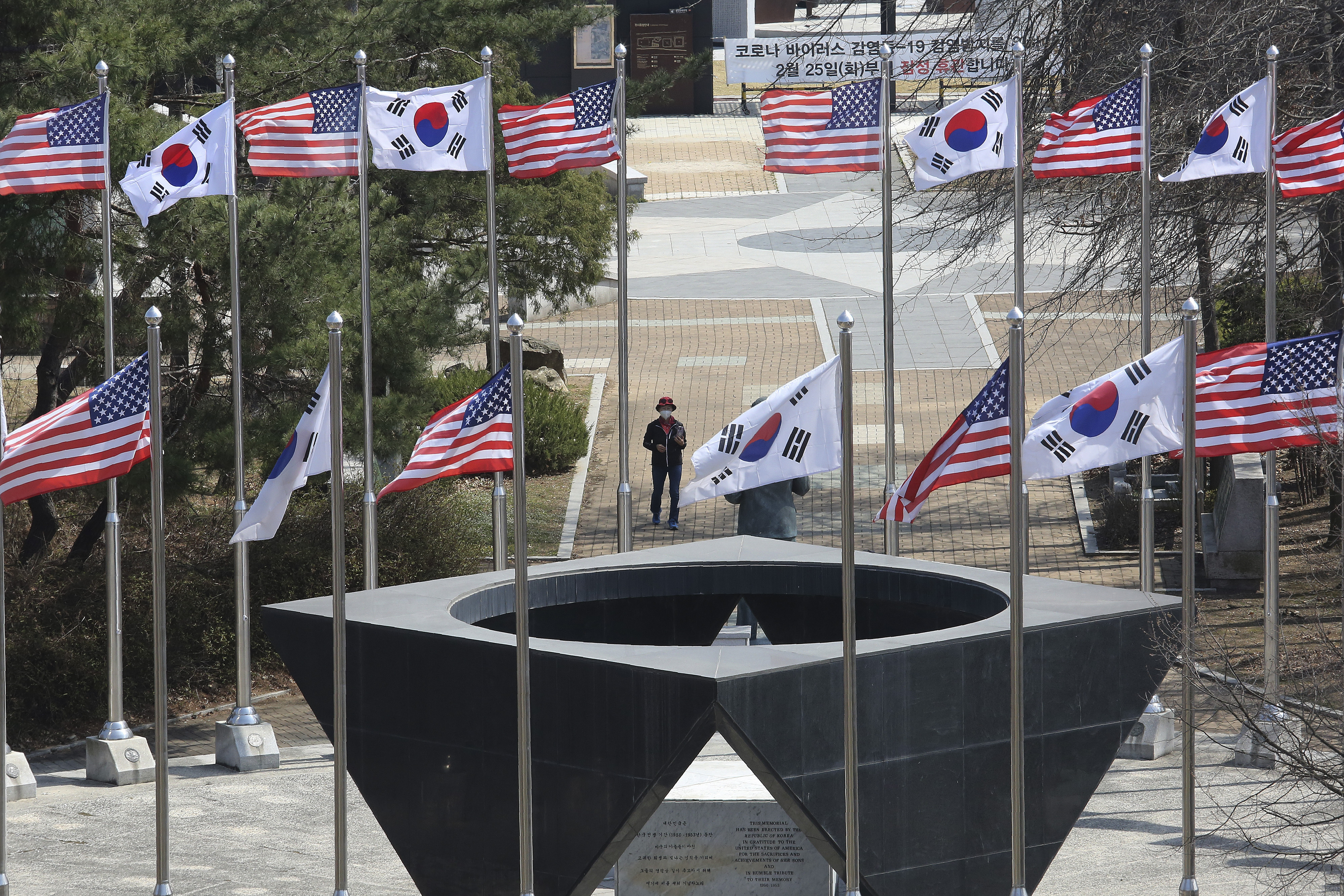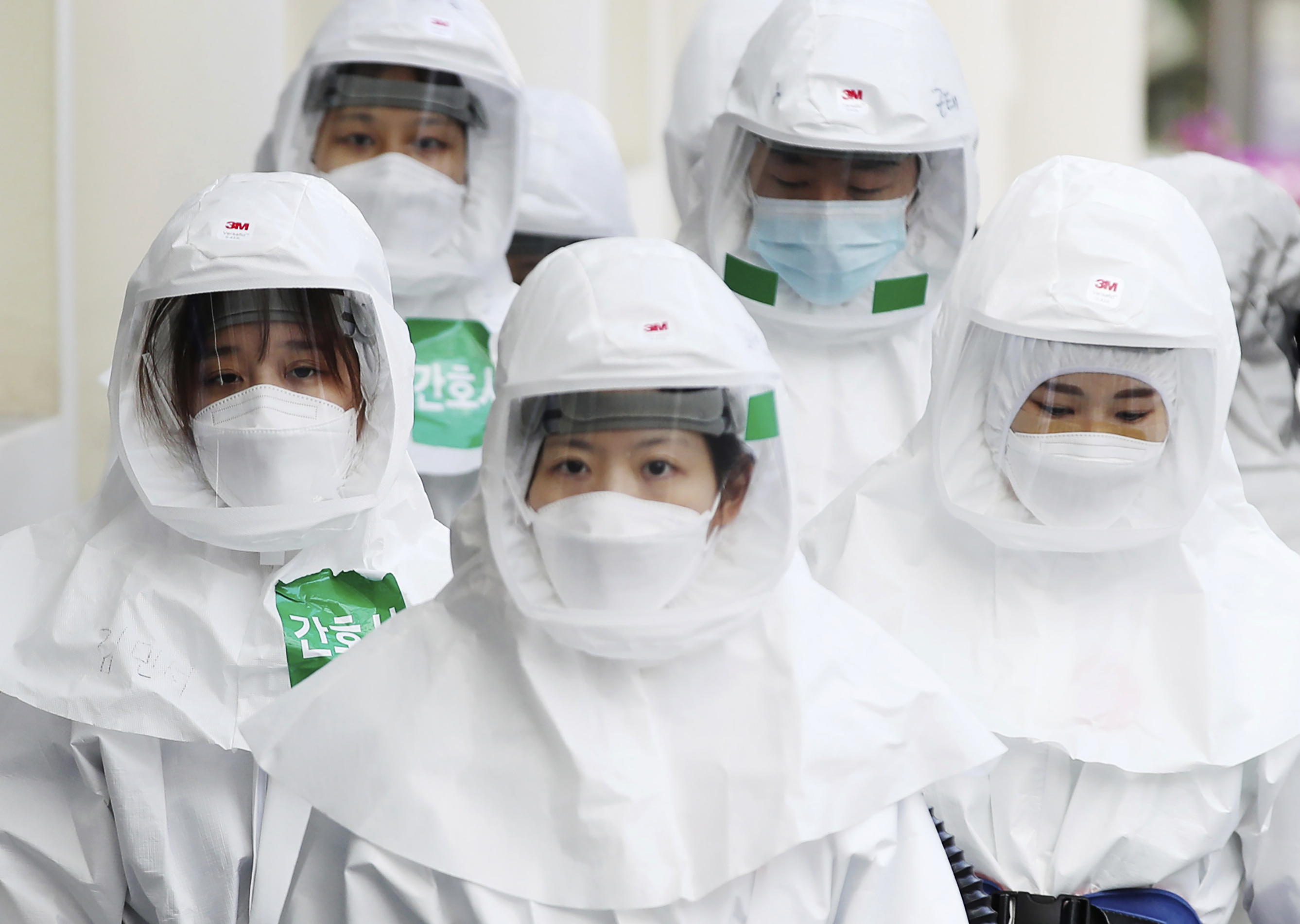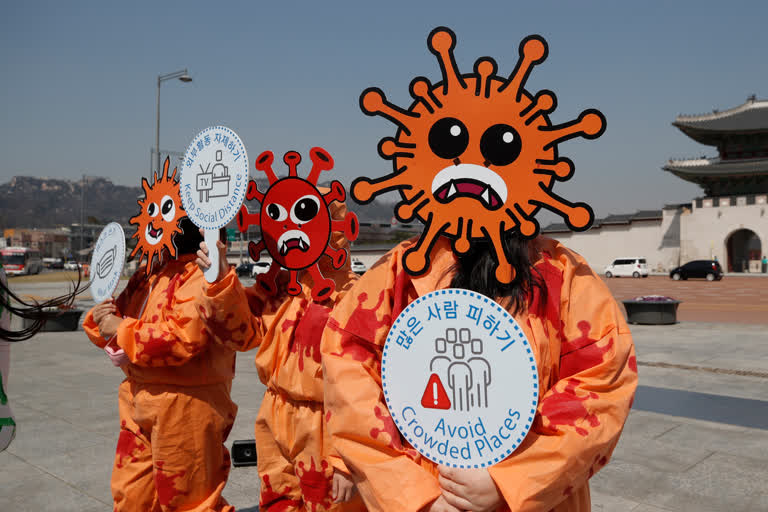Hyderabad: At a time when major global superpowers like the US, the UK and China are struggling hard to put a brake on COVID-19 pandemics, South Korea's approach to curb the spread of the virus makes it different from others.
Ever since the country reported its first confirmed case in late January, it came up with great courage and determination to fight against the virus and now it is yielding results.
From a steep rise in COVID-19 affected in the country to implementation of large-scale testing, Seoul has proved its ability to tackle the situation swiftly and decisively.
Addressing a virtual World Economic Forum COVID Task Force meeting, South Korean Foreign Minister Kang Kyung-wha said, "It doesn’t matter that my country is stabilizing and coming to grips with this, the world must overcome this together."

"We acted early. But much of it surprised us – especially how fast it moves,” the Foreign Minister explained.
Seoul handled the first 30 cases in a steady and diligent manner. But, when 31st COVID-19 patient identified, it suddenly turned the tables.
“After that, it just exploded. Containing the spread became difficult. Our sense of crisis at that time was like the sense of crisis in many European countries who are fighting the infection today – a feeling of being overwhelmed,” Kang told.
Also Read: China contained COVID-19, yet its jitters are far from over
South Korea reported just 30 cases with no deaths between January 19 to February 18. On February 18, it reported 31st case and everything changed after that. In the next 10 days, the number of affected surpassed 2,300 mark.
The 31st patient, also known as super-spreader, passed the infection to a larger number of people before her diagnosis by travelling to crowded cities like Daegu and Seoul. She was also admitted to a hospital after meeting with an accident and attended church services.
“But you need to plan and to stay one step ahead,” says Foreign Minister Kang. “We took an all-government approach. The Prime Minister created a task force of all government ministries and, crucially, all regional and city governments, too – we are a very devolved democracy.”

Kang went on to add: “When one region ran out of hospital beds we asked other provinces to open up beds in their hospitals. When it ran out of doctors we asked doctors in other regions to help.”
According to Kang, “The key to our success has been absolute transparency with the public – sharing every detail of how this virus is evolving, how it is spreading and what the government is doing about it, warts and all.”
Also Read: Coronavirus deaths in US surpass China's
In South Korea testing was made mandatory and it in turn became absolutely critical with a fast-travelling virus like this.
So far 350,000 cases were tested, and for some patients tests were conducted many times before they are released, so we can say they are fully cured.
So much so one out of 145 or one out of 150 people have been tested so far.
Unlike the US, Italy, the UK, South Korea did not go for a lockdown. However, it went for closing down of schools.
Even if, South Korea successfully managed to curb the outbreak of the virus, Kang sounded cautioning during her speech: “Even with schools opening, we realize it’s not going to be normal like things were before the coronavirus. Normal after the virus is going to look very different. This will be with us for a long time. So we all need to find a way to manage it at a status quo level.”



